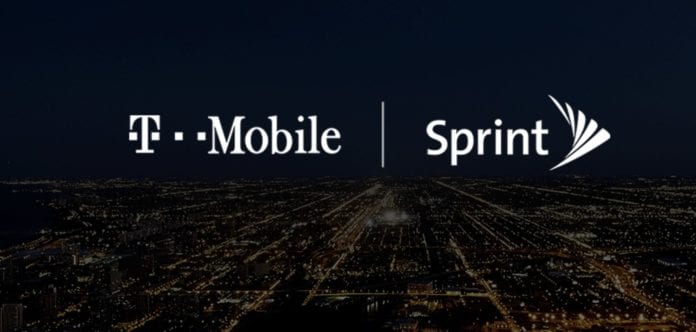The T-Mobile, Sprint merger dragged on for far too long. Congratulations to both for finally getting it done. So, what’s next? What can we expect? What does the merger mean for these two companies and for the wireless industry as a whole? You may be surprised. Let’s take a closer look.
First, this merger will make T-Mobile larger and give them more spectrum. That’s exactly what they need to continue to grow as 5G becomes more important going forward. Without this merger, their lack of spectrum would gotten in their way. Now they are in much better shape.
The big story about T-Mobile, Sprint merger is about wireless spectrum
Second, with regards to how this T-Mobile, Sprint merger will impact the wireless industry, I don’t see it having any impact at all in the short term. Long-term, we don’t know yet.
They will spend the next few years digesting this merger, strengthening their existing offerings and developing some new services like wireless pay TV.
What will happen long-term is always the great unknown. What this means is until T-Mobile proves itself, we should not believe any predictions for tomorrow. Not yet anyway. We simply do not know how this extra spectrum will translate into growth for the new T-Mobile.
Will Dish Network be a leader in wireless and mobile?
We also do not know what role Dish Network will play. Will they be a strong fourth place competitor, or will they just be another competitor like Xfinity Mobile, Spectrum Mobile and Altice Mobile?
If Dish becomes a wireless player with these assets, how long will it take? I think it will take several years at best, based on what I see so far. They have not discussed this in any detail, plus Dish has never been a quick-change agent.
What I am saying is we just do not know at this early stage the long-term implications this T-Mobile, Sprint merger will have on the already changing wireless marketplace.
They will have to explain to me and to the marketplace how they intend to do this over time.
AT&T, AT&T TV, WarnerMedia, HBO Max, Verizon, Fios and more
There has already been plenty of change in the wireless industry over last several years that this merger has been percolating. Both AT&T Mobility and Verizon Wireless have already moved beyond traditional wireless and are expanding the industry.
AT&T is the wireless industry leader in innovation. They are blending their wireless operation with wire line and going forward with WarnerMedia, Warner Brothers, AT&T TV, HBO Max and so much more.
I expect them to continue to transform the traditional pay TV space going forward. Their launch of AT&T TV last week and upcoming launch of HBO Max was another sign of this massive and continual transformation.
Verizon Wireless is also moving into some of these spaces with their FiOS pay TV and more.
New T-Mobile CEO Mike Sievert has big job ahead
That’s why I don’t expect this merger to have any impact on the changing industry. At least in the next few years.
Longer-term, it depends what ideas new CEO Mike Sievert has and if he can be successful with them. Only time will tell.
While I hope he is successful in the long-term, they have just not discussed what their plans for tomorrow are. That leaves us with more questions than answers.
So, as you can see, there are still quite a few questions to be answered. And that means it will take time for workers, customers and investors to fully understand.
Previous CEO Dan Hesse saved Sprint
I would say the best days at Sprint were when Dan Hesse was CEO. He saved the company from going under. In fact, he not only stabilized the company, but it started to grow once again until it was acquired by Softbank.
When Sprint was acquired by Masayoshi Son of Softbank, he chose Marcelo Claure as new CEO. That started another painful chapter in Sprint history. They showed some growth for a while, but that didn’t last.
Going forward into the world of 5G, the wireless industry is all about ultra-fast wireless data. And wireless data needs wireless data spectrum.
T-Mobile, Sprint merger made sense from beginning
T-Mobile knew they needed more wireless data spectrum and Masayoshi Son of Sprint knew he needed more of a marketing footprint for growth.
That’s why this deal made sense from the beginning. Both AT&T and Verizon were growing and expanding, while T-Mobile and Sprint were stuck in a 4G wireless only world.
Together they now have the marketing power and the spectrum to grow in the 5G world. That’s what I expect to happen over the next few years. I also expect them to follow AT&T and Verizon into new market segment’s for growth.
Wireless industry already changing without regard to T-Mobile
The ball is now in their court and all we can do is wonder, speculate and watch their progress.
As the wireless industry has been growing and changing, T-Mobile is still just a wireless company. Growing beyond simple wireless is the first big step they must take.
The good news is the wireless industry has already begun its next big transformation wave. This latest change wave already begun. In fact, it started several years ago.
So, the big story about the T-Mobile, Sprint merger is about wireless data spectrum. It’s about how they will finally be able to grow with 5G going forward. This solves one, big problem they face.
So, congratulations to both T-Mobile and Sprint on finally getting this merger complete. This is an important first step. The first of many more steps ahead.
I hope they are very successful going forward. The marketplace will be better with three successful competitors. That was the entire reason this merger with Sprint made sense in the first place.
Over the last few years the new game has already begun. And the sooner T-Mobile can jump in and compete, the better.

